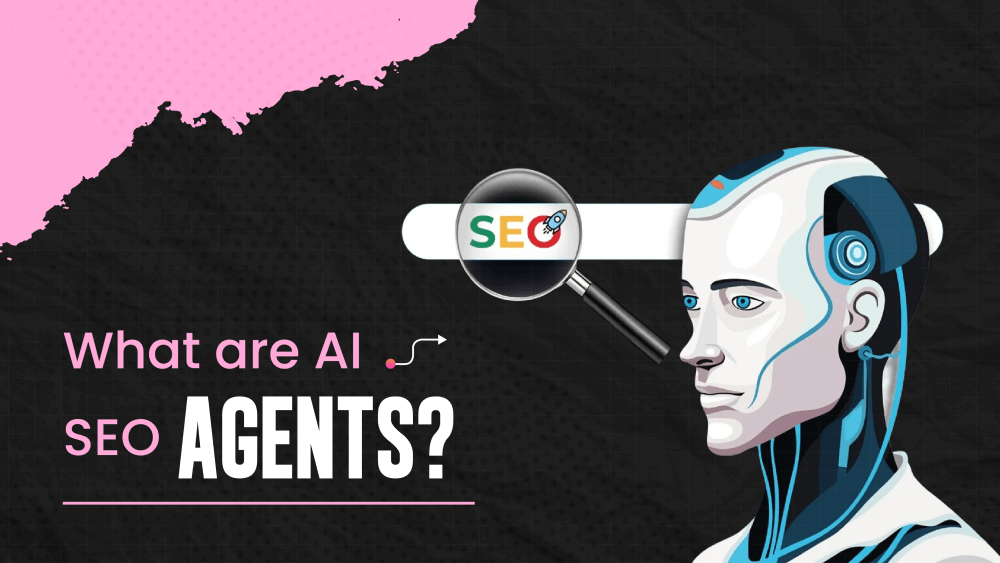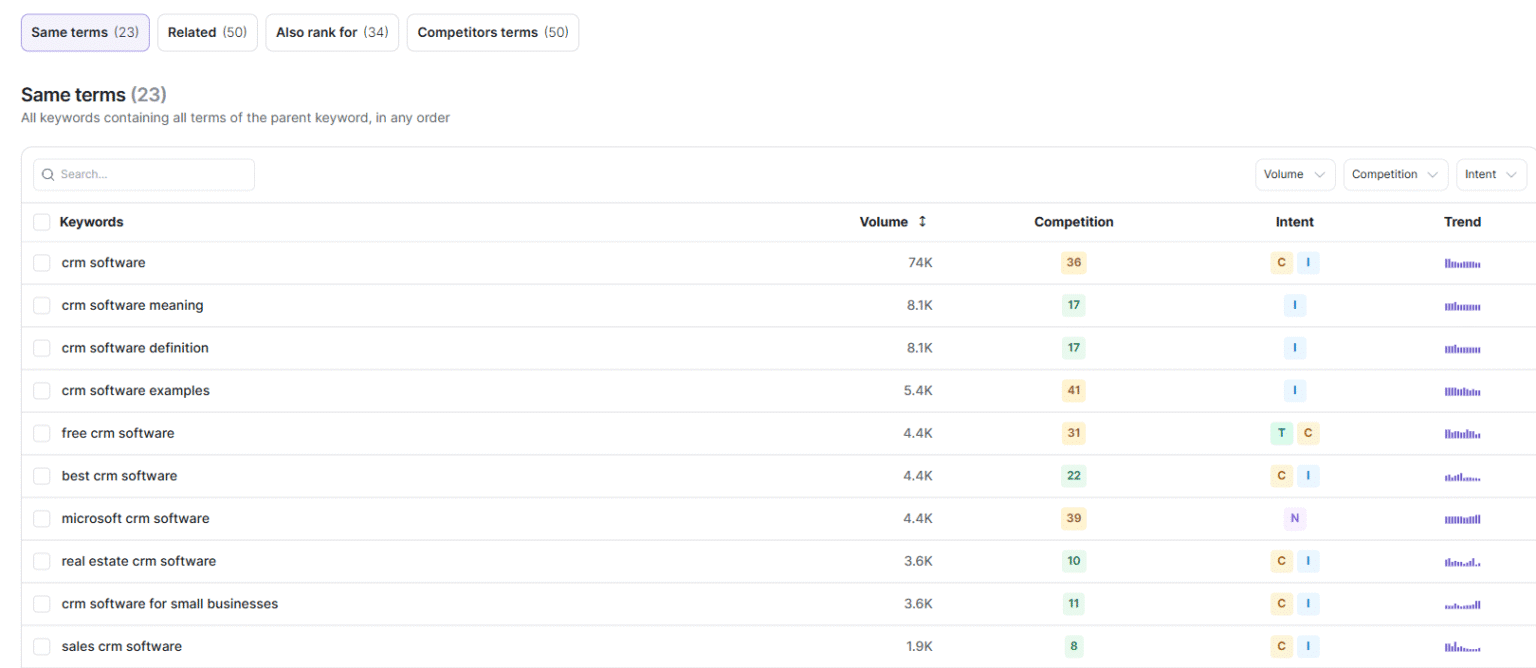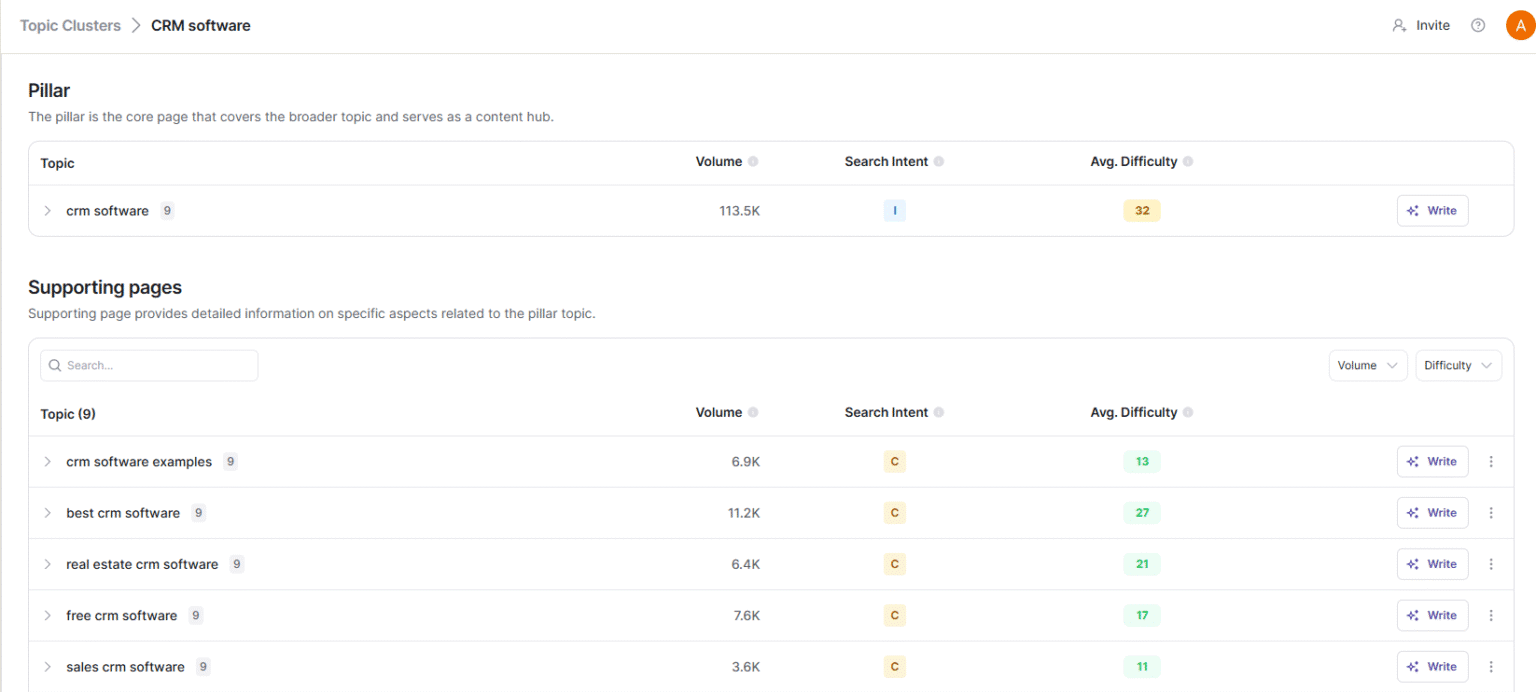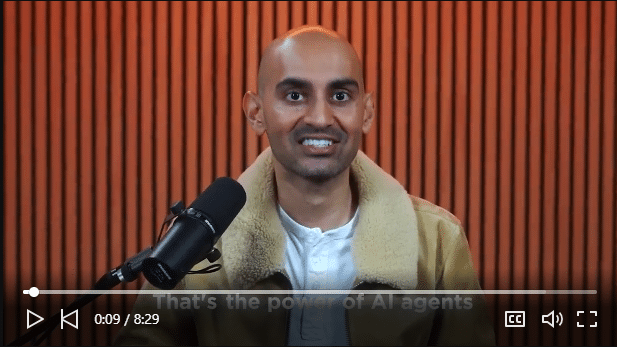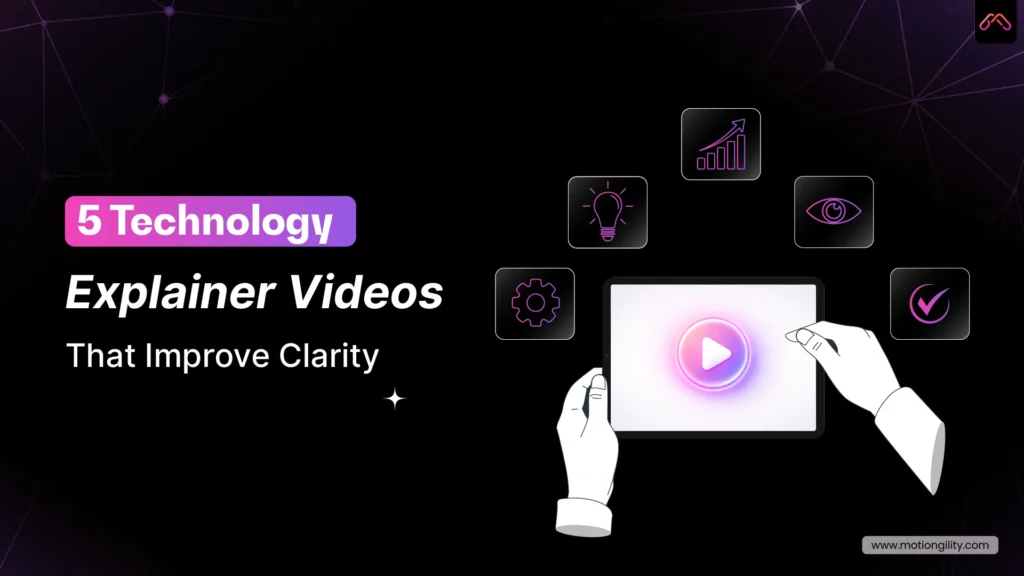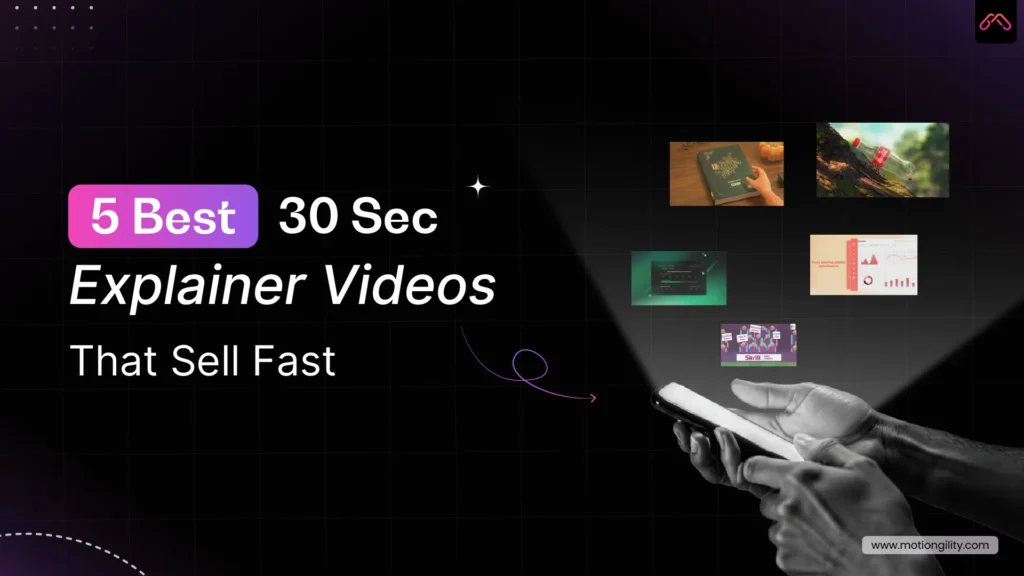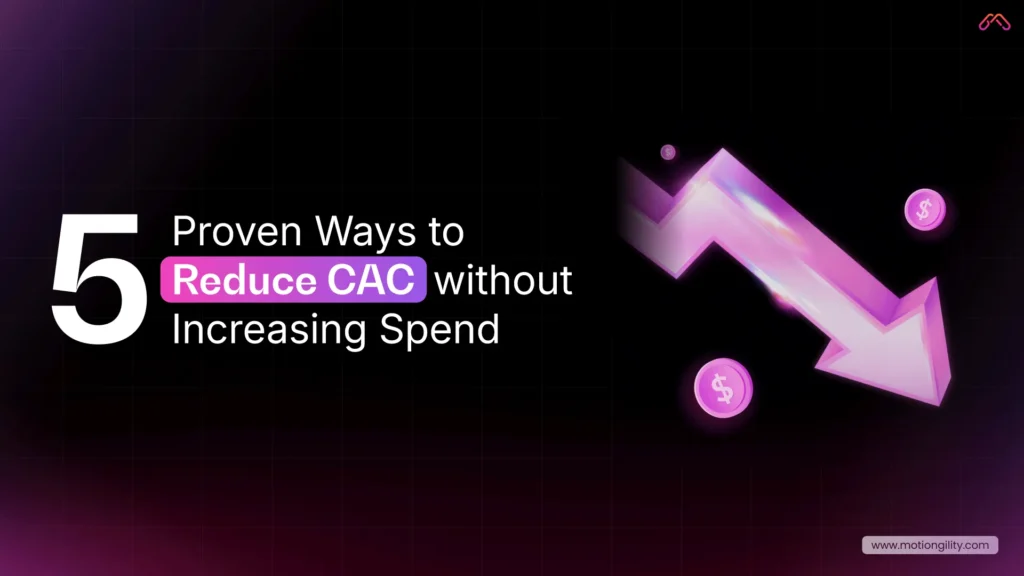AI tools are getting smarter and faster at performing tasks that would otherwise take humans hours to complete.
Whether you’re researching keywords for your next blog, writing the content outline, or auditing a website, something is happening behind the scenes:
AI agents are stepping into our workflows in a way that marketers, SEO professionals, and content teams cannot ignore anymore.
Now, we have AI SEO Agents – a fresh breed of automation developed to think, analyze, and execute modern SEO activities.
In this article, I’ve dug deep into understanding them, how these AI agents work, their capabilities, their benefits, and their future in SEO.
What are AI SEO Agents?
AI SEO Agents are smart tools powered by Artificial Intelligence that automate and optimize multiple SEO tasks.
These include keyword research, website audits, SEO audits, optimizing content, and even real-time tracking of SEO performance with the help of tools like a keyword tracker.
As autonomous systems/ agents, they help expedite SEO processes by eliminating manual effort that requires hours or even days, fundamentally transforming how optimization work gets done.
Consider them your assistant. These SEO agents don’t sleep, don’t get distracted, and can analyze thousands of datasets faster than humans.
Unlike traditional SEO tools or AI chatbots, AI agents can help generate actionable insights and recommendations for quick implementation. In many cases, they even execute it on their own without detailed manual instructions.
So, if you’re considering using AI agents for SEO, let’s break this down: How exactly do they provide you with a strategic and timely edge over traditional tools?
Difference Between Traditional SEO Tools and AI SEO Agents
Parameter | Traditional SEO Tools | AI SEO Agents |
Keyword Research | Manually researched and majorly surface-level data | Semantic Analysis, real-time search intent & topic clustering |
Content Optimization | Provides on-page optimization tips and little to no actionable information | Suggests contextually-rich pointers that are NLP-focused based on SERP competitors |
Site Audits | Mostly runs through rule-based crawling and provides generic information | Based on users’ experience, and is adaptive to learning patterns for generating insights |
Content Planning & Strategy | Calendar-based, driven by manual research of topics, outlines, etc. | Advanced analysis identifying competitor gaps, SERP analysis, and entity-based research |
Execution | Slow – needs hours or even days to execute large SEO activities without an in-house team. | Quick, streamlined activities are automated and organized through a workflow |
Decision-making | Relies heavily on static reports and human analysis | Predictive planning allows quick implementation of the plan and a broader scope for execution |
Scalability | Tough to scale without a large and dedicated SEO team | Fairly easy, as it can help manage hundreds of pages and content with minimal human input |
While traditional tools and AI chatbots like GPT, Claude, Gemini, Grok, etc., are quick and adaptable, AI agents offer a more inclusive and intelligent approach.
Now that you know what they are and how they’re different from normal tools, check out how they can be useful to various stakeholders in generating quality output:
What are the Key Capabilities of using AI Agents for SEO?
KPMG’s latest AI quarterly pulse survey states that around 11% of US companies with an annual revenue of almost $1 billion claim to already be deploying AI agents in their workflows.
While these SEO service agents promise to handle multiple SEO tasks at once, let’s explore their capabilities and how they can help marketers, writers, strategists, etc.
1. Keyword Research and Clustering
AI agents excel at generating semantic and NLP-driven keywords by analyzing hundreds and thousands of keywords at once that help you match users’ search intent best.
When you input a primary keyword, they sift through hundreds of rows and identify patterns between variations—something that could probably be missed out during manual research.
Here’s a quick example: While researching for a keyword on Writesonic, it provides you a list of keywords, related terms, long-tail variations, and semantically connected SEO phrases that could be utilized as possible terms to help your blog/guide rank better.
That’s not it. The biggest benefit and time-saver is its ‘Topic Clusters’ feature that practically saves you hours.
This feature organizes your keywords into logical clusters by systematically bifurcating them into “pillar topic” and “supporting topics” based on user intent and topic relevance.
This is where AI agents for SEO take the center stage. By automating your research and preparing logical & SEO-friendly clusters, you strengthen your topical authority much faster than manual research.
So the more structured and interconnected your content is around these clusters, the stronger your domain appears in that topic, helping you earn authority, trust, and better rankings over time.
2. Content Optimization
AI SEO Agents heavily rely on Natural Language Processing [NLP] as they leverage it to break down context, intent, and technical relationships between terms through advanced analysis.
Tools like SurferSEO and Writesonic use NLP technology to identify factors like keyword usage & density, content structure, content gaps, and topical coverage to score your content against your top-performing SERP competitors.
While performing AI content optimization for SEO, these agents also briefly scrutinize the existing SERP and identify what are the terms that can push your site’s content ahead of your competitors.
However, it’s necessary to know that while traditional SEO strategies have or continue to stress Latent Semantic Indexing [LSI] keywords, this concept doesn’t exist as per Google’s Search Advocate John Mueller:
3. Technical SEO Audits
Imagine having an SEO AI agent that fixes your site’s technical issues – broken links, crawl errors, speed loading issues, caching, duplicate content, JS errors, and many more.
These agents don’t just report issues, they even fix them for you. While talking about AI agents in his recent video on LinkedIn, Neil Patel shared how their in-house tool Scout digs into the code and handles fundamental technical SEO fixes itself.
It’s like having an in-house 24/7 junior developer who needs zero instructions and ensures your site’s technical SEO status remains perfect.
Moreover, these AI agents are helpful with:
- Simplifying page speed optimization by analyzing multiple metrics
- Generating XML sitemaps by learning the website’s structure
- Creating a custom robots.txt file to help make the most of crawl efficiency
- Identifying and executing schema markup based
4. Performance Tracking and Optimization
SEO AI Agents help with performance tracking by automating data analysis, real-time insights, and suggesting actionable steps for enhancing website performance.
So instead of jumping between multiple spreadsheets or tools, marketing professionals can leverage these tools for AI-powered SEO analysis and spot ranking fluctuations, content performance issues, and search algorithm shifts before it’s too late.
These agents aren’t limited to just tracking. What’s important are the insights they provide that allow professionals to extract the best SEO ROI while watching AI handle data, detection, reveal gaps, and provide impactful insights.
Apart from this, it also identifies new trends and patterns through optimization recommendations that could help improve results. All this at a fraction of the cost and zero delay, complemented by reduced manual errors.
What are the Benefits of using AI Agents for SEO?
Making these AI-powered tools for optimizing search performance can help eliminate the need for manual SEO strategies and workflows.
Here are 3 core benefits of using AI for SEO:
1. Quicker Content Generation and Optimization
By helping generate AI SEO keywords, these agents significantly help accelerate the content generation process, cutting down time by 50-75% when prompted effectively.
So when your keyword research, blog outline, article generation, and optimization are being taken care of, you can focus on strategic planning and creative initiatives.
However, this doesn’t dismiss the importance of human writers. It’s just that with evolving dynamics, writers & editors can ensure AI-powered content workflows remain high-quality while maintaining Google’s E-E-A-T guidelines and SEO-friendliness.
2. Data-Driven Decision Making
AI SEO software excels at processing large datasets quickly and identifying semantic SEO relationships that might get missed by human oversight.
This helps get rid of guesswork from your strategy and helps optimize content through AI.
Leveraging this capability can transform raw information into SEO AI intelligence and expedite the decision-making process.
3. Scalability For Larger Websites
For sites creating and publishing hundreds or thousands of pages monthly by deploying programmatic SEO, SEO service agents offer unparalleled scaling opportunities.
At a pace manually impossible, AI enhances the creation of content strategies and comparison guides through precision, distanced from saturated content.
Plus, they also help ensure your brand consistency across different content pieces.
What are the Limitations of AI Agents?
It’s important to acknowledge that while these AI agents look extremely promising in helping execute tasks quickly, they are not magic wands.
Just as LangChain’s Founder, Harrison Chase, puts it:
“I don’t think we’ve kind of nailed the right way to interact with these agent applications. I think a human in the loop is kind of still necessary because they’re not super reliable.”
So if you’re planning to hand over your SEO automation tasks to AI agents, check out these 3 limitations that still worry developers:
1. Lack Accuracy
AI agents sit on a mountain of hundreds and thousands of data, and sometimes they misinterpret or misread it.
Often known as AI hallucinations, they generate insights and even suggest fixes concerning your site; however, they are the opposite of what you expected them to be.
In more practical roles, like an AI receptionist, the risks are lower, as the tasks are often more structured and focused on routine interactions.
It might suggest that you interlink your current blog to a previous resource, which doesn’t fit the context check upon manual verification.
Therefore, these agents are still not immune to complex SEO errors and still require human experience.
2. Risk of Over-Automation
If you’re sure convinced of using AI agents for marketing end-to-end, check this out.
When you allow agents to run automation on autopilot, there are chances you’re risking your site’s technical capabilities.
For instance, you let AI handle your blog’s SEO titles, descriptions, breadcrumbs, schema, etc. Later, upon discovery, they feel bland and end up sounding generic, just like others.
Check out this example when I ran an experiment to automate a tiny heading section through GPT. This is what it generated:

However, upon clicking the generated URL, it doesn’t exist in reality:
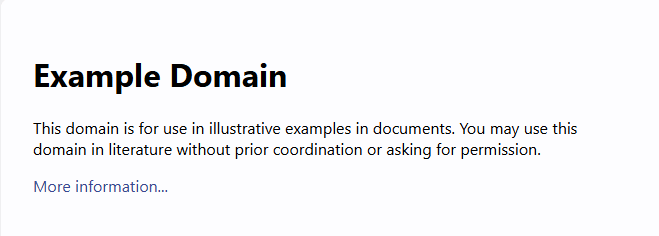
Looking at this and similar SEO or Paid Search automation incidents, Neil Patel has aptly summarized it in his video:
“This is why you don’t want an AI agent to just go out there and turn off a non-performing campaign… Sometimes it’s actually just because the campaigns are new and fresh, and it takes time for these ad platforms to learn.”
3. Human Oversight is Crucial
I’m sure you will agree with me here. No matter how advanced your SEO Agent gets, it still requires a human to command and oversee its operations.
Your agent is prone to making errors, like misinterpretation of your brand voice, tone, descriptions, agenda, etc.
This is where human guidance helps bridge the oversight gap through experience and an inclusive approach toward handling SEO activities.
Using AI as an assistant is okay, but not as the primary driver.
What are the Top SEO AI Agent Tools?
10-12 months ago, AI agents were considered experiments. Now, they’re full-fledged tools helping marketers, editors, and writers perform automated SEO at scale.
Here are some powerfool AI SEO tools you must check out:
1. Alli AI
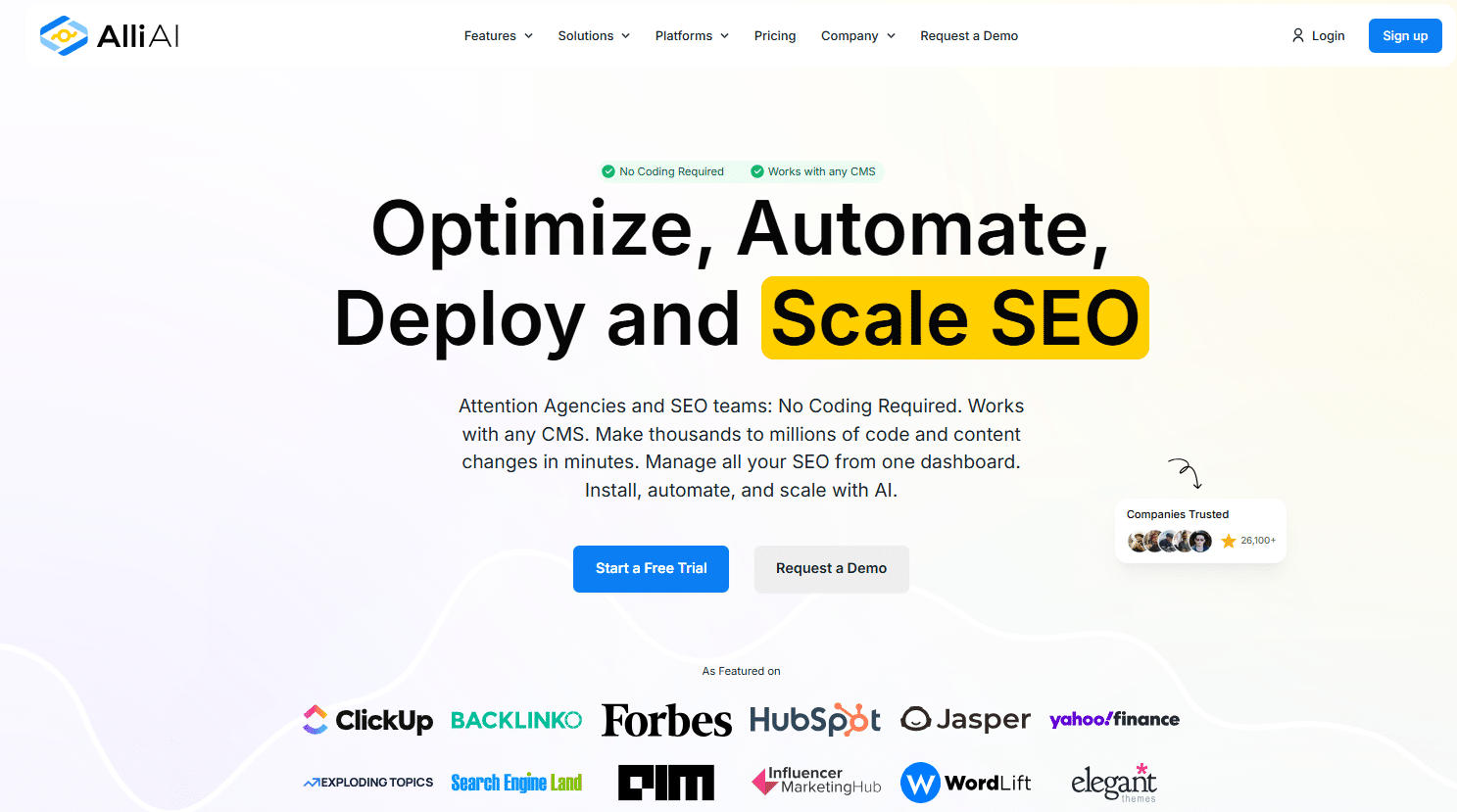
From on-page optimization to link building, Alli AI is an AI SEO optimization tool that handles it all.
It analyzes your entire website and helps find out errors such as missing canonical tags, meta description errors, absence of breadcrumbs, etc., and fixes them within a few clicks.
However, the standout feature that Alli AI offers is real-time deployment. So while you’re running SEO automation, Alli AI helps you bypass technical limitations and perform SEO better and faster.
2. Writesonic
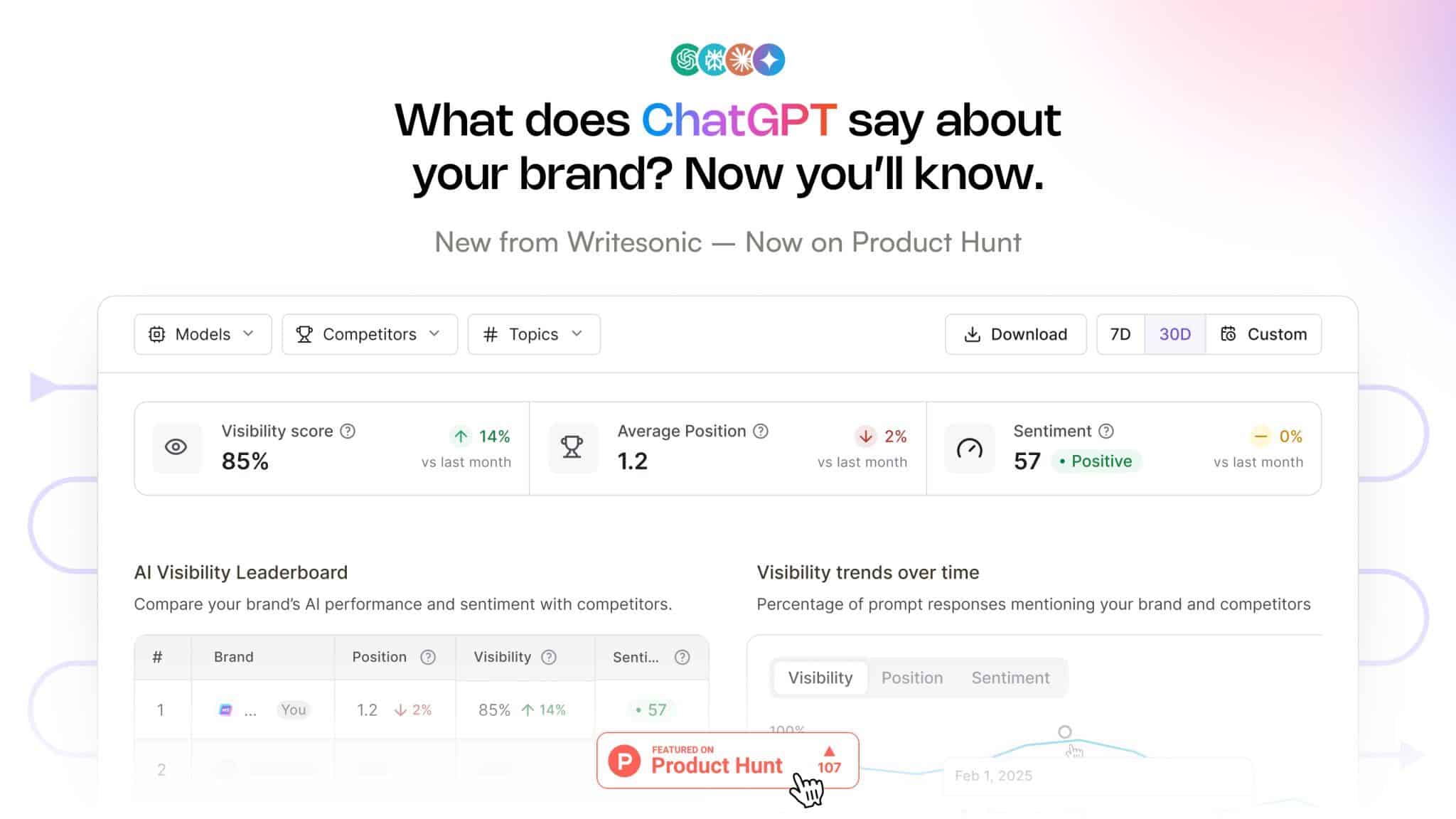
More than an AI Agent for SEO, Writesonic is a full-fledged SEO content engine in itself.
Through its 3 core products, AI Writer, Chat Assistant, and Conversational Chatbot, Writesonic offers a user-friendly interface and can be an excellent writing assistant for individuals and teams alike.
Their latest tool, AI Search Visibility Monitor, now allows users, marketers, and content managers to track and optimize brand visibility across AI platforms, including search engines.
3. Arvow
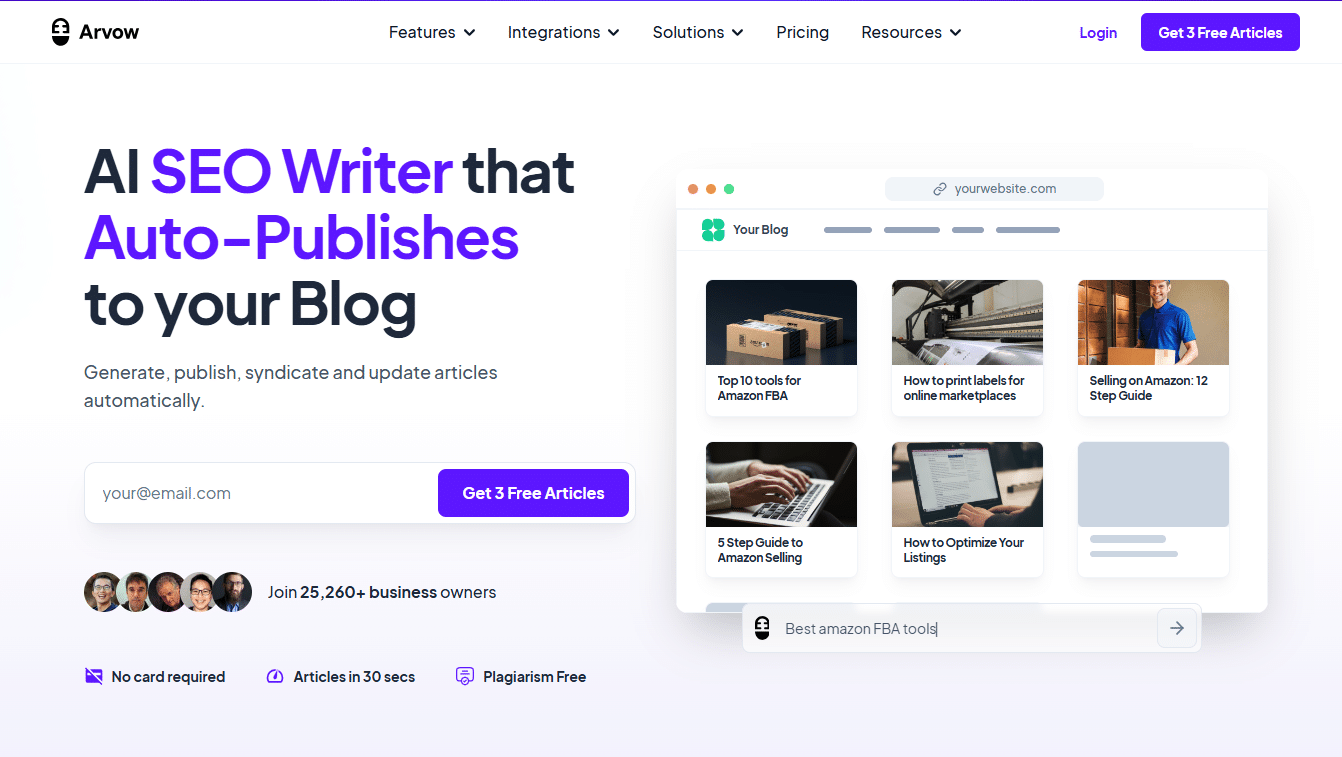
Formerly known as Journalist AI, Arvow is yet another well-known AI SEO agent that functions on 3 parameters – scanning, reasoning, and implementation.
While running a continuous site check, it identifies issues such as schema markup injection, content duplication, image optimization, etc., and automatically fixes them without manual intervention.
Arvow also offers a suite of tools, such as AutoBlog, AI SEO Writer, Keyword Monitor, etc., for integrated SEO management and content optimization using AI.
Conclusion
AI SEO Agents are here to stay and evolve as they get trained on both heterogeneous and homogeneous data types.
However, you can expect them to commit mistakes and mess up things that may force you to invest human time and effort to fix them.
I believe that the best SEO teams judiciously use AI to their benefit while also guiding it to generate quality output.
Frequently Asked Questions [FAQs]
What are AI SEO
Ans: AI SEO ageagents?nts are autonomous tools that analyze websites, optimize content, and monitor performance continuously to improve search visibility with minimal manual effort.
What benefits do AI SEO agents offer?
Ans: They save time, scale repetitive SEO tasks, deliver real-time insights, and adapt quickly to algorithm changes, helping businesses grow traffic more efficiently.
What can AI SEO agents do?
Ans: AI SEO agents handle keyword research, content optimization, technical audits, backlink analysis, and on-page fixes, reducing the need for constant human oversight.
What are the top AI SEO agent tools in 2026?
Ans: Popular tools include SurferSEO, Nightwatch, and advanced agentic platforms that automate SEO workflows, reporting, and optimization at scale.


